
Blog.
Most Recent Posts
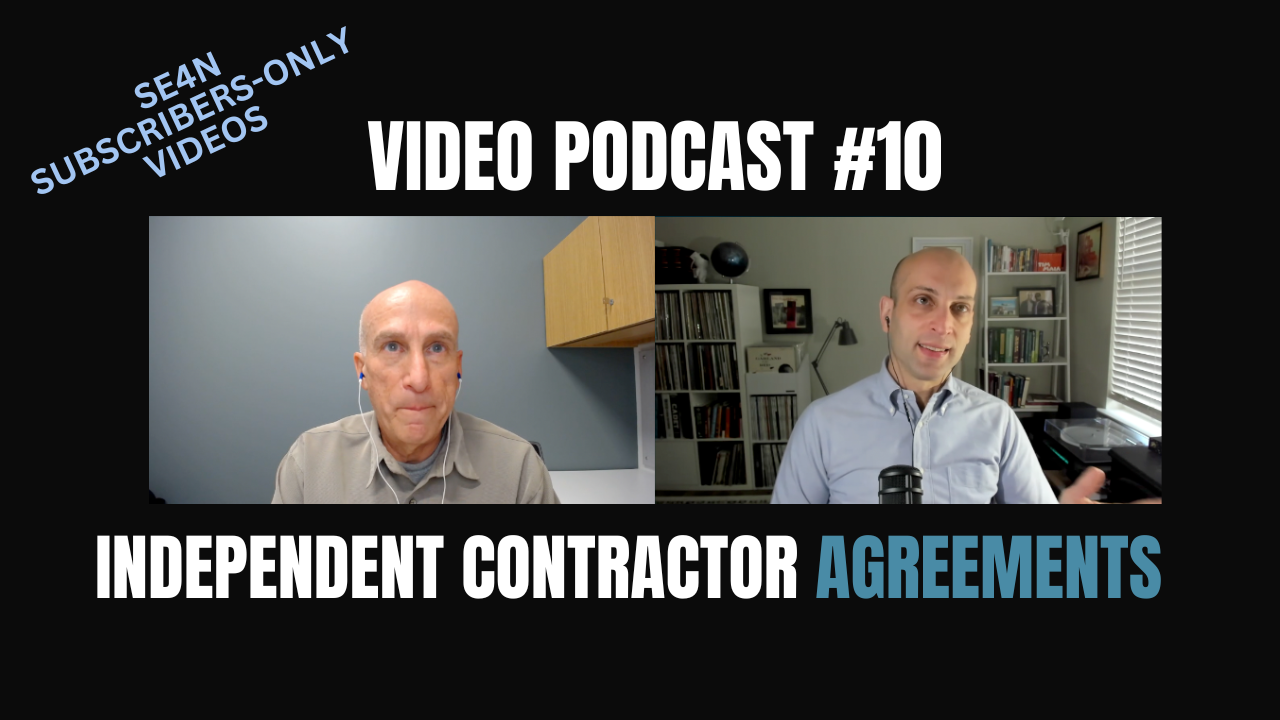
VIDEO PODCAST: Drafting Independent Contractor Agreements
Ben and Mike discuss key issues nonprofits should consider when drafting independent contractor agreements for consultants and other service providers, including how independent contractor agreements impact worker classification, approaches to using and customizing template agreements, drafting compensation and scope of work terms, and more.
![VIDEO Q&A for Subscribers: September 2024 [SUBSCRIBERS-ONLY]](https://images.squarespace-cdn.com/content/v1/5e6ccadfb4659c1d51df14d5/f0598e46-14f4-464c-8b03-5ce99563762d/SE4N+Video+Q%26A+2024-09.png)
VIDEO Q&A for Subscribers: September 2024 [SUBSCRIBERS-ONLY]
Ben and Mike answer questions from subscribers about whether nonprofit organizations should require employees and Board members to provide receipts for small dollar expense reimbursements, tips for properly using executive sessions in Board of Directors meetings, and issues raised by nonprofits providing capacity building support to other nonprofits.
![TEMPLATE: Code of Ethics [SUBSCRIBERS-ONLY]](https://images.squarespace-cdn.com/content/v1/5e6ccadfb4659c1d51df14d5/140ce6f8-d818-421d-a512-3dd273795b20/trees-7034574_1920.jpg)
TEMPLATE: Code of Ethics [SUBSCRIBERS-ONLY]
A Code of Ethics is one of the fundamental governance policies that all nonprofit organizations should have, and an important complement to your organization’s conflict of interest policy. This Code of Ethics template is intended to help your organization identify and express the core principles and ethical requirements with which all Board members, staff, and other individuals who serve and/or represent the organization are expected to comply.
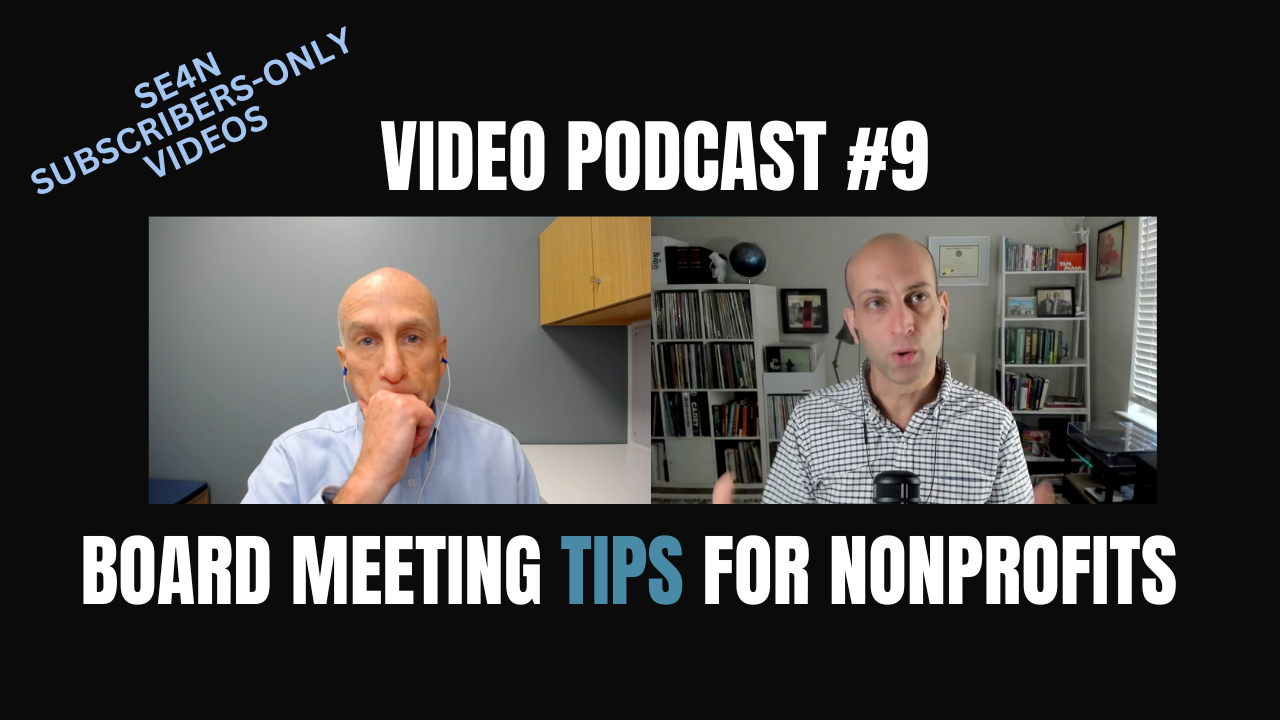
VIDEO PODCAST: Board Meeting Tips for Nonprofits
Ben and Mike discuss tips and recommendations to help nonprofits make their Board meetings more efficient and impactful, including best practices related to advance notice and distribution of Board materials, creating a meeting agenda, use of a "consent agenda," and whether nonprofits should follow Robert's Rules of Order.
![CHECKLIST: Virtual Board and Committee Meeting Tips [SUBSCRIBERS-ONLY]](https://images.squarespace-cdn.com/content/v1/5e6ccadfb4659c1d51df14d5/502237bc-b021-4573-8d4f-982a1b6e729c/benjamin-child-GWe0dlVD9e0-unsplash.jpg)
CHECKLIST: Virtual Board and Committee Meeting Tips [SUBSCRIBERS-ONLY]
The default format for traditional governance meetings (Boards of Directors, committees, working groups, etc.) has shifted to a virtual setting. However, most governance meetings still use agendas, approaches, and meeting structures based on old “in-person” meeting formats. This 4-page checklist is designed to help you freshen up your virtual Board and committee meetings, make them more effective, and improve participant engagement and satisfaction.
![VIDEO Q&A for Subscribers: August 2024 [SUBSCRIBERS-ONLY]](https://images.squarespace-cdn.com/content/v1/5e6ccadfb4659c1d51df14d5/94ba66db-acce-4fa3-8f98-f369cd6d48d0/SE4N+Video+Q%26A+2024-08.png)
VIDEO Q&A for Subscribers: August 2024 [SUBSCRIBERS-ONLY]
Ben and Mike answer questions from subscribers about whether fixed assets and restricted funds can count toward a nonprofit organization's operating reserves, the pros and cons of taking over an existing 501(c)(3) organization rather than starting a new one, how abstentions are counted in a Board vote, and whether an organization should use a credit card or debit card.
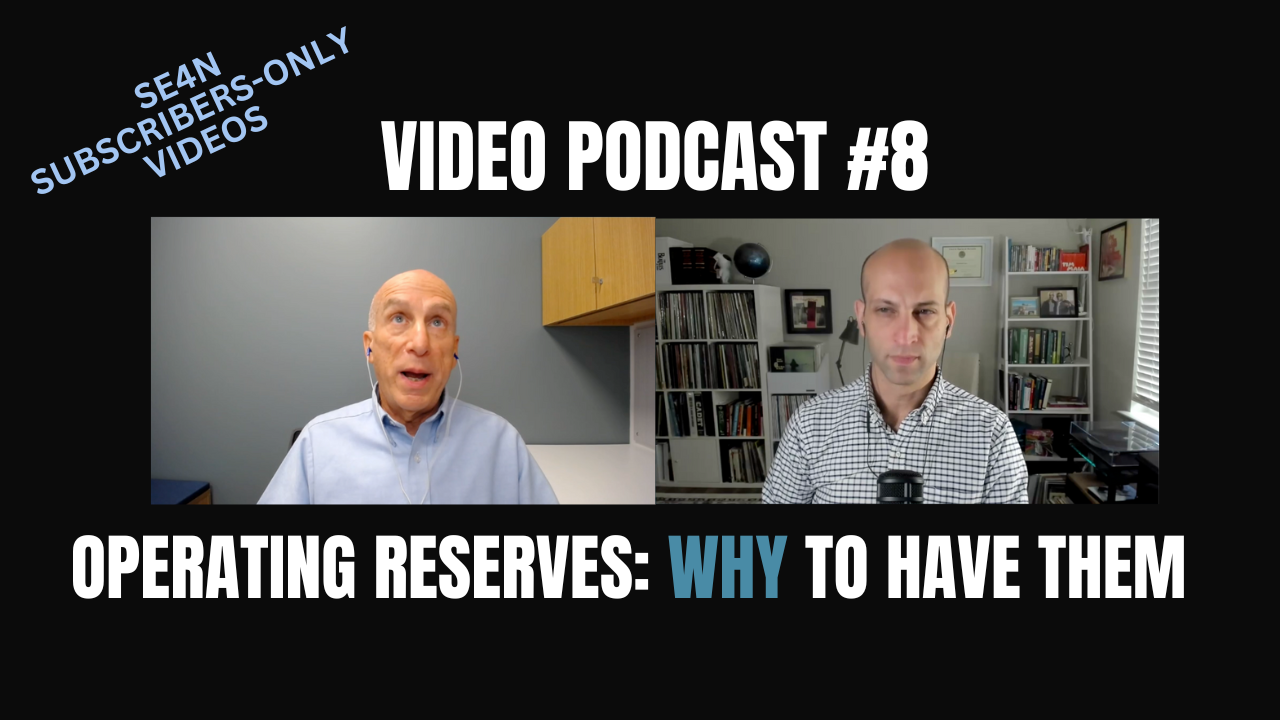
VIDEO PODCAST: Why Nonprofits Should Have Operating Reserves
Ben and Mike discuss the reasons why operating reserves are essential for the financial health and sustainability of nonprofit organizations, the short-term and long-term purposes of operating reserves, lessons learned from past economic disruptions, and some recommendations for operating reserve policies.
![VIDEO Q&A for Subscribers: July 2024 [SUBSCRIBERS-ONLY]](https://images.squarespace-cdn.com/content/v1/5e6ccadfb4659c1d51df14d5/aac04086-c784-4878-b7d8-4a2f376d10a3/SE4N+Video+Q%26A+2024-07.png)
VIDEO Q&A for Subscribers: July 2024 [SUBSCRIBERS-ONLY]
Ben and Mike answer questions from subscribers about the definition of cash basis accounting and its consequences, implications of Board term holdover language and legal remedies to hold organizations accountable for not following their Bylaws, the benefits of tracking volunteer hours and what this means for an organization’s Form 990 and financial statements.
![How to Use Non-Traditional Communication Pathways to Enhance Board Member Engagement [SUBSCRIBERS-ONLY]](https://images.squarespace-cdn.com/content/v1/5e6ccadfb4659c1d51df14d5/1709999994790-QELF431RC556TCSP4B42/thanos-pal-bakq5bepwbQ-unsplash.jpg)
How to Use Non-Traditional Communication Pathways to Enhance Board Member Engagement [SUBSCRIBERS-ONLY]
Always be on the lookout for proactive and unique communication opportunities to stimulate Board member interest in your nonprofit organization’s mission and activities, foster positive feelings, and generally catch their attention. Because we live in a world of constant change that is further complicated by Board turnover (new Board members entering while other Board members are exiting or rotating through officer positions) it is essential to be creative and flexible with Board member communications by incorporating both traditional and non-traditional tactics.
![TEMPLATE: Independent Contractor Agreement [SUBSCRIBERS-ONLY]](https://images.squarespace-cdn.com/content/v1/5e6ccadfb4659c1d51df14d5/9c548fca-b5f0-4ea1-8837-07d3ef70c66a/glenn-carstens-peters-ARpAUafeTp0-unsplash.jpg)
TEMPLATE: Independent Contractor Agreement [SUBSCRIBERS-ONLY]
This independent contractor agreement template contains basic provisions for situations in which nonprofit organizations hire consultants and other service providers on an independent contractor (Form 1099) basis. The template includes language intended to help support independent contractor treatment when appropriate, and covers key terms such as confidentiality, intellectual property rights, insurance, indemnification, and more.
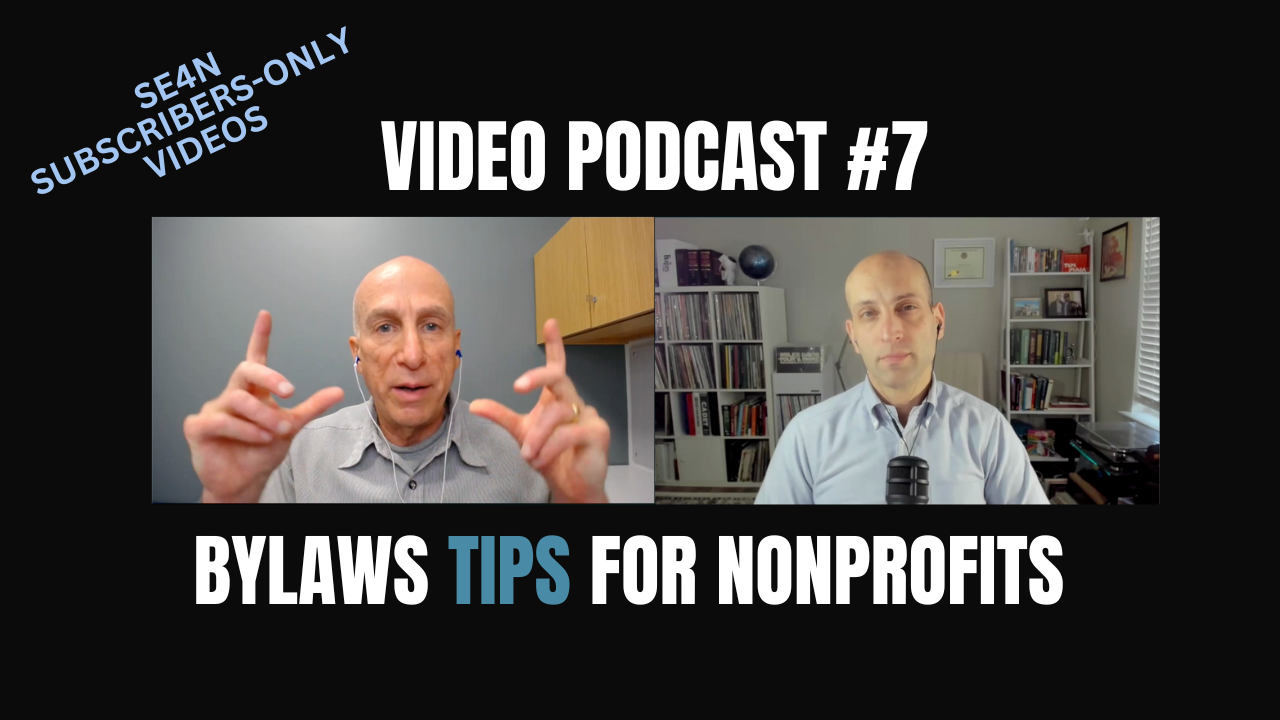
VIDEO PODCAST: Bylaws Tips for Nonprofits
Ben and Mike discuss tips and recommendations to help nonprofit organizations build better Bylaws, such as establishing a schedule for regular review of the Bylaws, complying with state law requirements, addressing Board meeting formalities, notice, and quorum requirements, clarifying term limits language, and more.

TEMPLATE: Labor Budget Worksheet
Labor costs are usually the largest expense line-item in a nonprofit organization’s budget. Preparing a separate labor budget is key to building a realistic and achievable budget for the next fiscal year. This labor budget worksheet will help you to view and manage the costs of staff salaries, employee benefits, and payroll taxes, show how these labor costs are expected to be allocated to programs, fundraising, and administrative (overhead) departments, and assist with aligning your organization’s budget with reporting requirements under generally accepted accounting principles (GAAP) and Form 990.
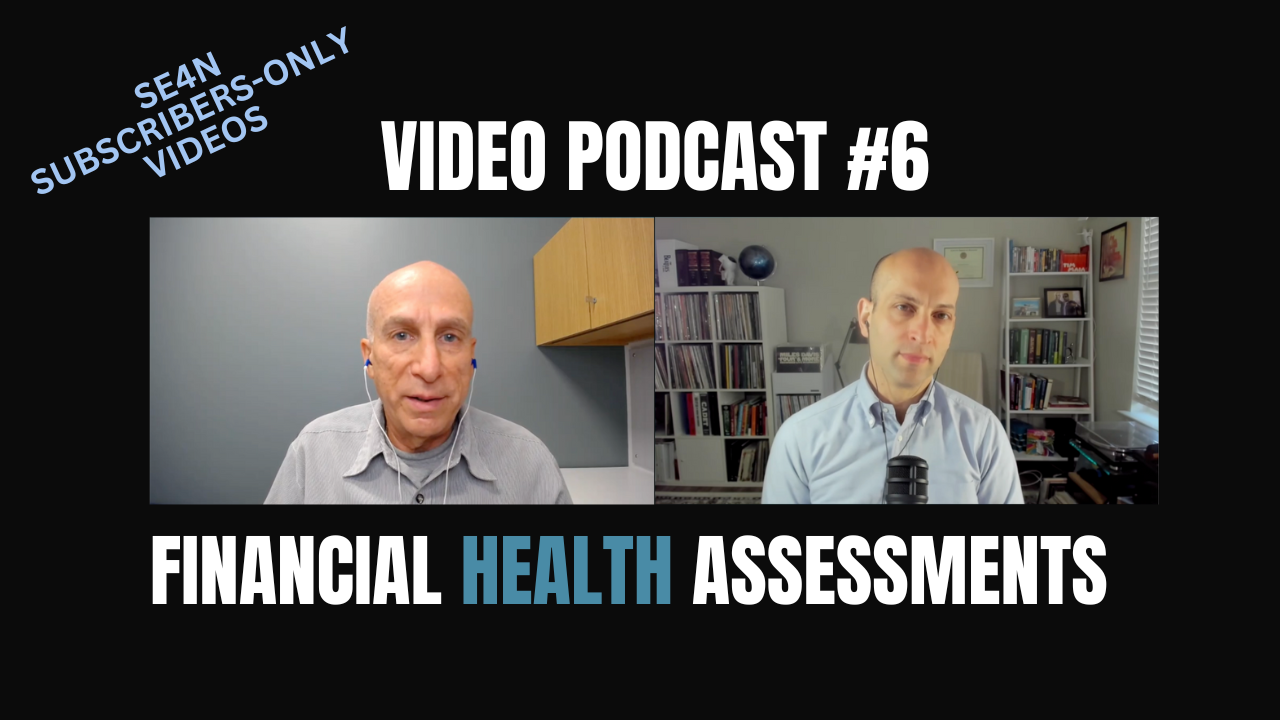
VIDEO PODCAST: How and Why to Do Regular Financial Health Assessments for Your Organization
Ben and Mike discuss the importance of performing regular financial health assessments for a nonprofit organization, understanding the key components of an organization’s financial health and the appropriate financial health markers to track, how the Financial Health Assessment and Implementation Framework worksheet can be a valuable tool for your organization, and more.
![TEMPLATE: Basic Capital Budget Spreadsheet [SUBSCRIBERS-ONLY]](https://images.squarespace-cdn.com/content/v1/5e6ccadfb4659c1d51df14d5/43015284-66cf-477c-b331-ddc6275f41e0/laptops-7917663_1920.jpg)
TEMPLATE: Basic Capital Budget Spreadsheet [SUBSCRIBERS-ONLY]
Capital budgets are an important planning tool, helping nonprofit organizations to avoid problems from capital assets being used past their useful life, address future capacity challenges, and improve long-term cash flow planning. This basic capital budget spreadsheet template will help organizations to start tracking the acquisition and maintenance of their “capital assets,” i.e., material (larger dollar) assets that are expected to have a useful life of more than one year, such as computers, office furniture and equipment, leasehold improvements, and vehicles.

Integrating Financial Health Assessments into Your Organization’s Planning Process
The markers for tracking and assessing a nonprofit organization’s financial health are not a mystery. The key elements of financial health (operating reserves, funding, and operational expenses) are generally easy to identify and understand. You just need a willingness to keep your eyes open and a commitment to pause and make an honest assessment of a financial picture that has most likely been changing.